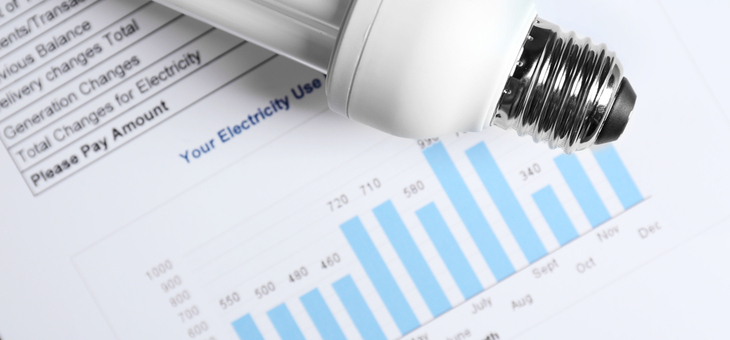As we prepare to head into the colder winter months, there is good news for those worried about heating costs – apparently electricity prices are falling.
According to the Australian Competition and Consumer Commission (ACCC), electricity prices have fallen almost 9 per cent since the middle of last year.
The ACCC has also revealed that there is around $900 million in potential savings for households in Australia’s eastern and southern states.
Read more: Get set to tighten your belt
Retail electricity offers now available to households in New South Wales, Victoria, south-east Queensland, South Australia and the Australian Capital Territory are, on average, 8.8 per cent lower than they were in June 2020, which equates to an average annual household saving of $126.
The ACCC findings are at odds with comparison website Compare Club’s first Bill Shock Index, a new quarterly analysis of 1500 billpayers, which found electricity prices are sparking the most bill shock.
The Bill Shock Index found that electricity costs were coming in significantly higher than anticipated for 40 per cent of people.
For 15 per cent of people, their electricity and gas bill was equivalent to the cost of their health insurance.
“Energy costs have been a pain point for consumers this year, especially with increased numbers of Aussies working from home,” said Compare Club chief executive Andrew Davis.
“Customers have reported they are spending between $100 and $200 a month on electricity and gas.”
ACCC monitoring revealed that if all customers in National Energy Market regions were to have the advantage of the potential savings by switching to lower offers or benefitting from retailers lowering the prices of their existing plans, the total annual savings would be about $900 million compared to June 2020.
The ACCC is warning electricity retailers that the onus is on them to comply with new energy market laws, and pass on reductions in their costs to existing customers.
Read more: Should solar owners pay to supply the grid?
“There are two ways that households and small businesses can get the hip-pocket benefit of recent reductions in retailers’ costs: by changing to a new, cheaper plan, or, by waiting for their retailer to lower the rates on the plan they’re already on,” said ACCC chair Rod Sims.
“While we encourage consumers to cash in on the available savings by switching to a better deal, new laws require electricity retailers to pass on cuts in the wholesale cost of electricity.”
The new Prohibiting Energy Market Misconduct (PEMM) laws that came into effect in June 2020 require electricity retailers to make reasonable adjustments to their prices in line with their costs of procuring electricity.
Read more: Economic upturn failing to relieve financial stress
Companies that fail to comply with the laws face serious penalties, including fines of up to $10 million or 10 per cent of their turnover per breach.
“A significant increase in generation capacity, attributed to renewable generation and falling fuel costs, has led to much lower wholesale electricity costs and it’s vital that all Australians now see the savings,” Mr Sims said.
“Prior to this, we had a decade of sustained electricity price increases that placed unacceptable pressure on households and small businesses.
“The ACCC is now investigating whether electricity retailers’ current prices, including to their existing customers, are in line with recent wholesale price reductions, and if electricity retailers haven’t passed on the savings to consumers as required by law, they can expect to hear from us,” Mr Sims said.
“We also expect further significant price reductions from retailers over time, as the reductions in wholesale spot prices flow through to retailers’ contracting positions.”
The ACCC has already approached a number of electricity retailers who may not have adequately passed on cost savings to their customers and will be closely monitoring the behaviour of many others in the electricity market over the coming months.
Retailers’ wholesale and network costs make up most of a consumer’s electricity bill, and wholesale spot market prices have decreased significantly in all National Energy Market regions in 2020-21.
Compared to 2019, average wholesale spot prices have decreased by 58 per cent in Victoria, 49 per cent in South Australia, 43 per cent in New South Wales and 39 per cent in Queensland.
“Spot prices have been significantly lower for a year now, so retailers should be experiencing significant reductions in their costs already,” Mr Sims said.

National Energy Market breakdown (since June 2020)
In Victoria, flat rate offer prices have reduced by 11.1 per cent to 14.2 per cent, and a typical household on a flat rate offer should save between $171 and $198 a year.
In New South Wales, flat rate offer prices have reduced by 4.7 per cent to 6.9 per cent, and a typical household on a flat rate offer should save between $80 and $88 a year.
In south-east Queensland, flat rate offer prices have reduced by 9 per cent, and a typical household on a flat rate offer should save $126.
In South Australia, flat rate offer prices have reduced by 6.8 per cent, and a typical household on a flat rate offer should save $118.
In the Australian Capital Territory, flat rate offer prices have reduced by 2.6 per cent, and a typical household on a flat rate offer should save $46.
“While the ACCC will be enforcing the new laws, we also urge people who haven’t seen their bill come down to contact their electricity retailer and ask to be put on the best offer for their circumstances,” Mr Sims said.
“Many consumers will be able to achieve further savings by comparing advertised prices and shopping around.”
Have you seen your electricity prices drop in the past 12 months? Have you noticed any difference? Do you shop around for electricity and gas?
If you enjoy our content, don’t keep it to yourself. Share our free eNews with your friends and encourage them to sign up.

